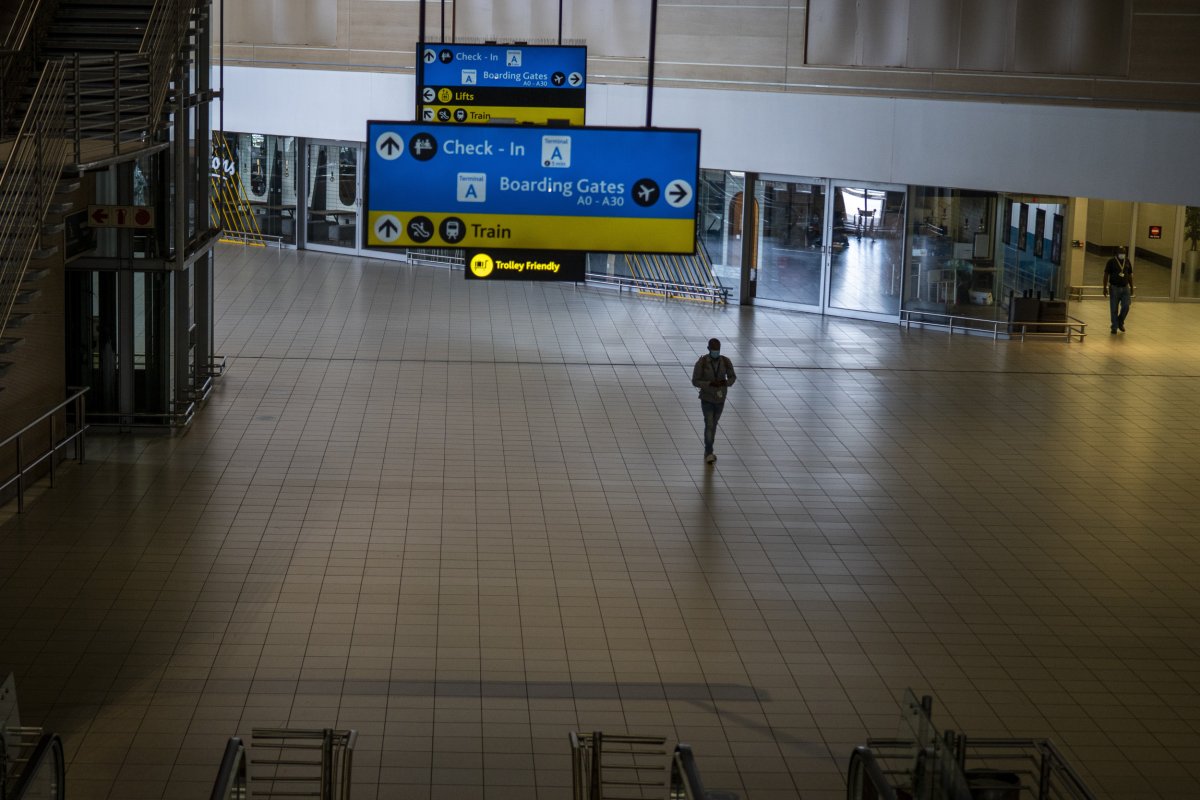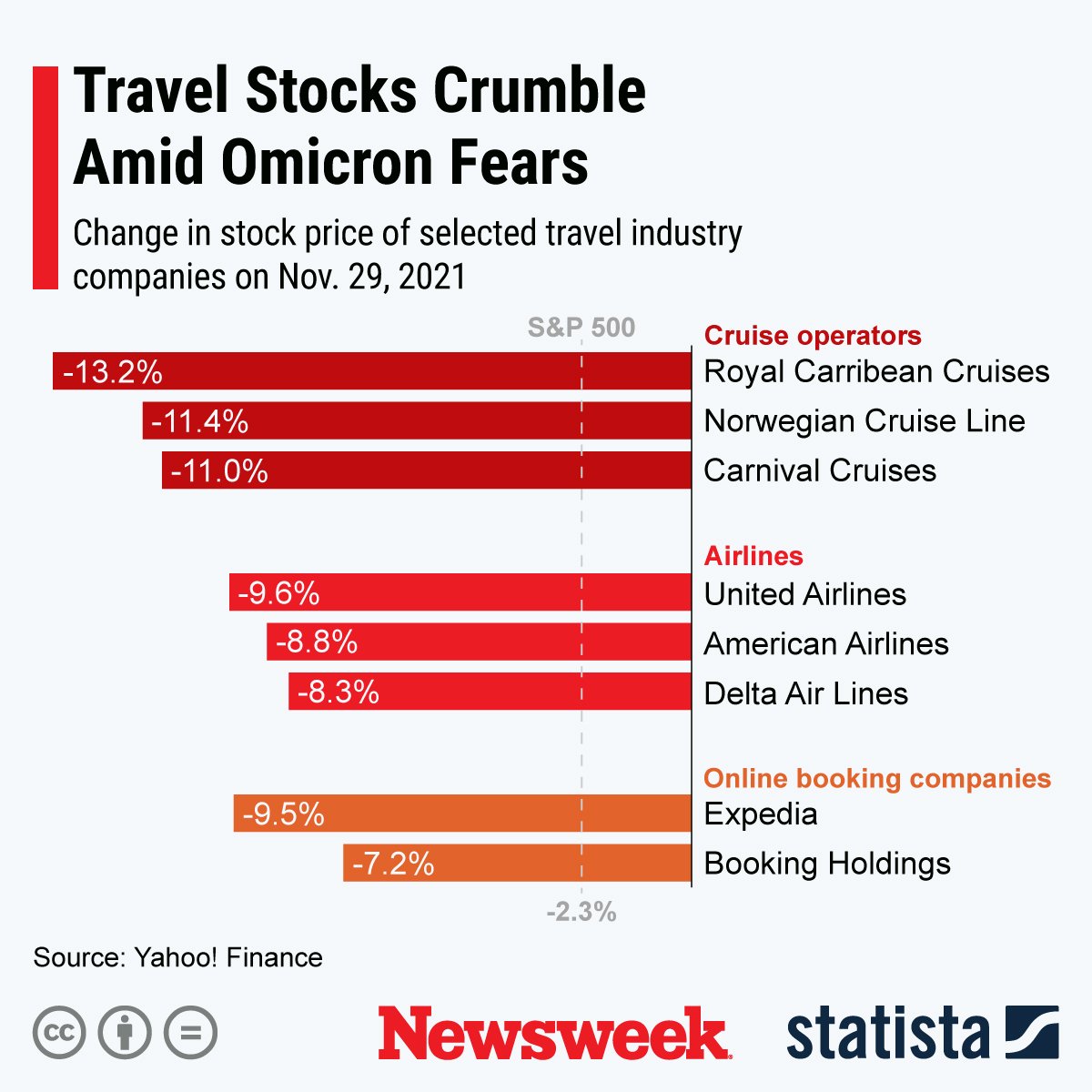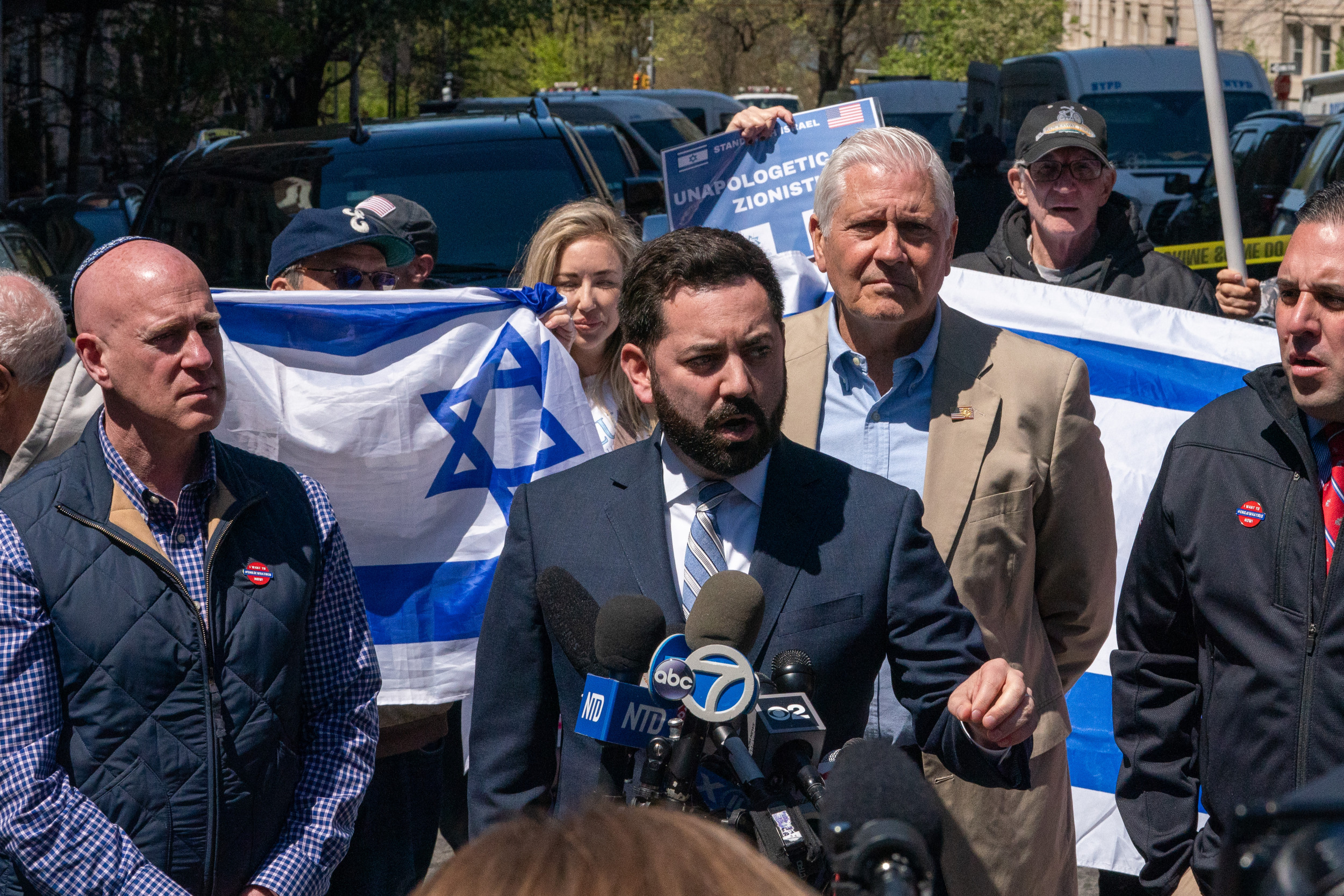The still-recovering travel industry is trying to keep forging ahead even as new travel restrictions have started popping up around the world amid mounting fears about the Omicron coronavirus variant, the Associated Press reported. The travel impacts come as many questions still remain about the highly-mutated variant, including how transmissible, dangerous and resistant to vaccines it may be compared to other strains.
The World Health Organization said that travel bans won't have much impact in containing the spread of the variant and will "place a heavy burden on lives and livelihoods." But many governments that were slow in imposing measures at the pandemic's onset are intent on not making the same error again, the AP reported.
London-based airline easyJet said Tuesday that the new travel restrictions already seem to be having an impact on bookings for the winter, but CEO Johan Lundgren said that the losses are not as hefty as they were in previous surges. Anko Van der Werff, CEO of SAS Scandinavian Airlines, said that winter demand was looking promising, but the company now needs "to figure out what the new variants may mean."
"In the past year, each new variant has brought a decline in bookings, but then an increase once the surge dissipates," said Helane Becker, an analyst with Cowen, a financial services firm.
Stocks for numerous top airlines, cruise lines and booking companies have taken heavy hits since the variant raised alarms. In Tuesday's premarket, shares of American Airlines stocks dropped 2.1 percent, Delta Air Lines dropped 2.2 percent and United Airlines also dropped 2.1 percent, MarketWatch reported.
Stocks for cruise lines also took a hit when Omicron drew international attention, though they have since recovered slightly.
For more reporting from the Associated Press, see below.

Less than a month after significantly easing restrictions for inbound international travel, the U.S. government has banned most foreign nationals who have recently been in any of eight southern African countries. A similar boomerang was seen in Japan and Israel, both of which tightened restrictions shortly after relaxing them.
Israel's decision to close the country to foreign visitors is hitting the nation's tourism industry as it geared up for the Hanukkah and Christmas holidays. The country only opened to tourists in November, after barring most foreign visitors since early last year.
Just over 30,000 tourists entered Israel in the first half of November, compared to 421,000 in November 2019, according to government figures.
Joel Haber, a Jerusalem-based guide, said during a typical Hanukkah holiday his calendar would be chock full of food tours through Jerusalem's colorful Mahane Yehuda market. Instead, he has just one tour a day.
"Tour guides like me are the first to get hit and the last to emerge and are directly prevented from working by a government decision," Haber said.
In the West Bank city of Bethlehem, revered by Christians as Jesus' birthplace, local businesses expected a boost from Christmas tourism. The Bethlehem Hotel, one of the largest in the city, has operated at a fraction of capacity for the past 18 months.
"Everyone who had bookings over the next two weeks has canceled, while others are waiting to see what happens next," said the hotel's manager, Michael Mufdi. "I don't know how much longer we can last, but we are doing our best."
The pandemic already caused foreign tourism in Japan to shrink from 32 million visitors in 2019 to 4 million last year, a trend that has continued through this year.
As worries surfaced about Omicron, Japan on Wednesday tightened its ban on foreign travelers, asking airlines to stop taking new reservations for all flights arriving in the country until the end of December. The country earlier reversed a relaxation of travel restrictions that had been in effect just three weeks.
The crowds of Chinese shoppers who used to arrive in Tokyo's glitzy Ginza district in a stream of buses to snap up luxury items have long disappeared. Restaurants and bars have been forced to restrict hours.
In Asakusa, a quaint part of town filled with souvenir shops, rickshaw drivers, and stalls selling traditional sweets, news of the Omicron variant made little difference this week. Vendors say there hasn't been any business for months except for a few local customers.
In South Africa, Frederic Plachesi, owner of Tamboti lodge in Dinokeng Game Reserve, is facing a similar fall-off in the international guests his business relies on.
"The odds are for the next few months, only locals will visit the lodge," said Plachesi. "We estimate a 60 percent loss of business because of the Omicron restrictions."
In Europe, Alpine ski resorts worry about how to keep up with requirements such as ensuring all skiers are vaccinated or recovered from infection and have tested negative for the virus.
Matthias Stauch, head of the German ski lift operators association VDS, said many are small family businesses that lack the staff to perform such checks. Meanwhile, the association is warning about "massive" economic damage to the tourism sector if there is another lockdown.
Travel executives argue that government decisions about restrictions should wait until more is known about Omicron, but they admit it's a difficult call.
"If you wait, by the time you have all the data it's probably too late to stop community spread because (the virus) is already here," said Robert Jordan, the incoming CEO at Southwest Airlines. "If you jump ahead, you run the risk of the measures being more impactful than the actual cases."
Uncommon Knowledge
Newsweek is committed to challenging conventional wisdom and finding connections in the search for common ground.
Newsweek is committed to challenging conventional wisdom and finding connections in the search for common ground.
About the writer
Zoe Strozewski is a Newsweek reporter based in New Jersey. Her focus is reporting on U.S. and global politics. Zoe ... Read more
To read how Newsweek uses AI as a newsroom tool, Click here.









